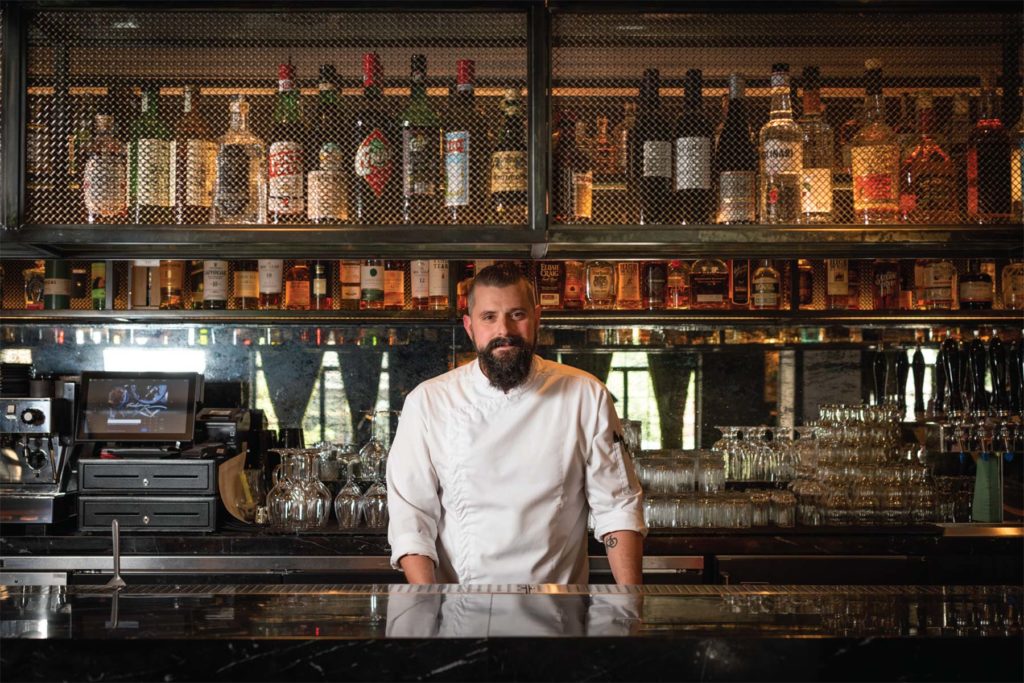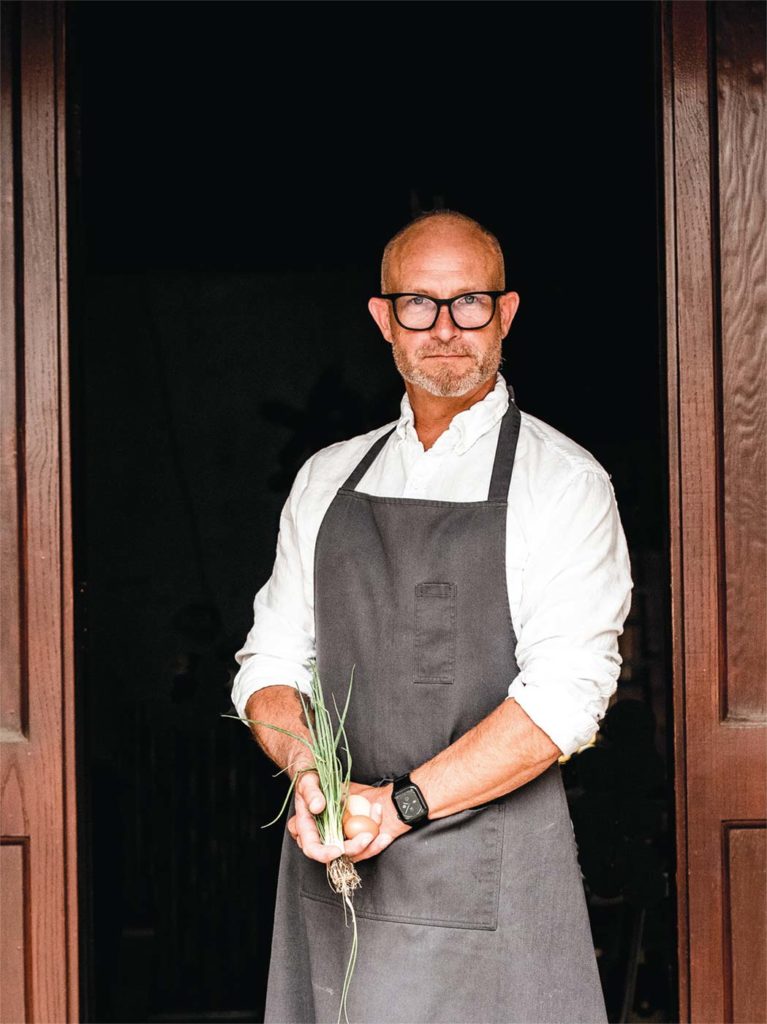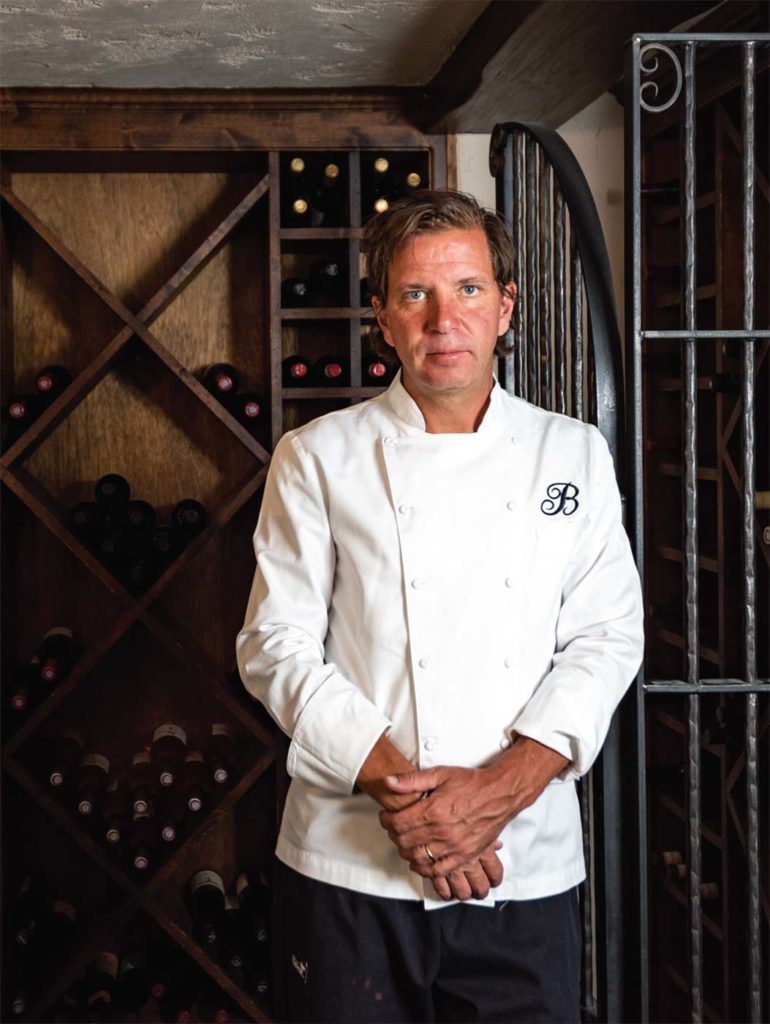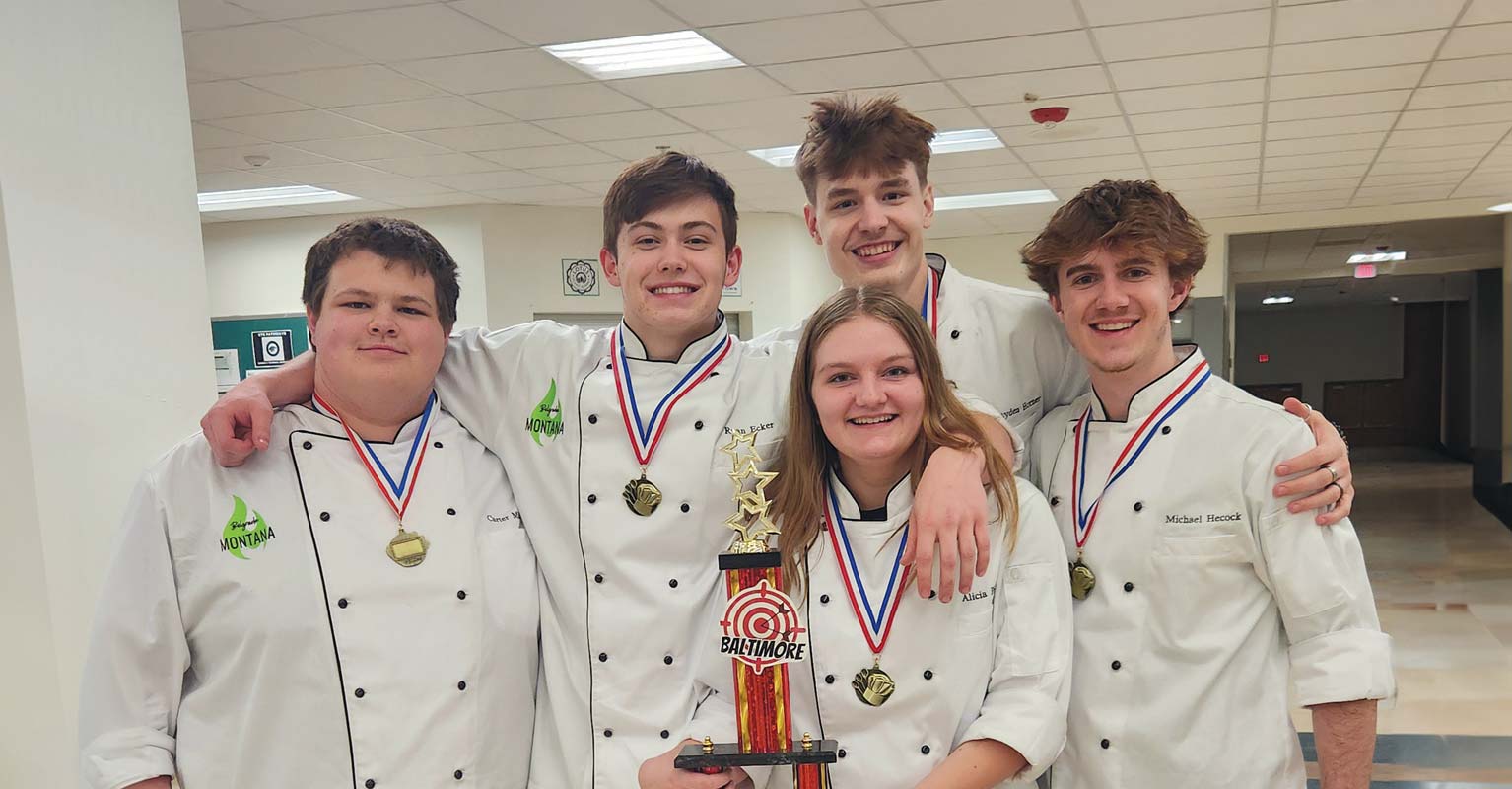Diners at Blackbird Kitchen enjoy the restaurant’s environment and Italian fare. Like many, owners Josh Gibson and Shannon Douglass are exploring ways to remake an overworked industry
A restaurant revolution is happening under the Big Sky. As eating establishments reopen after the COVID shutdowns, the industry is facing challenges—most critically, finding workers. People employed in the business of preparing and serving food traditionally earn low wages while working long hours. As reported by Brad Griffin, president of the Montana Retail Association, an umbrella organization for the Montana Restaurant Association, the minimum wage in Montana is $8.75, while the federal minimum wage is $7.25.
By and large, restaurateurs have expressed a need for change, and for many the COVID pandemic was the last straw. Daniel Wendell opened Tanoshii on Main Street in May of 2021, while still operating The Food Studio, his catering and private dining outlet. “The people who are willing to work are getting overworked and burned out,” he says. “I just had to shut down two lunches a week at Tanoshii. I wanted to lessen the load and labor hours.”
He worries about his ability to sustain a living wage and workforce, especially when the fast-food industry and large local chains are increasing employee compensation. “How do you compete with that?” he asks. At some restaurants, in cities such as San Francisco and New York, a service charge is added to the final tab to increase workers’ wages. But Wendell says this can deter people from tipping; he doesn’t envision integrating this practice at his establishments.
Wendell has always tried to pay his employees a living wage, he says. However, he just had three employees kicked out of their rental houses because the owners were able to make more money selling their homes on the booming housing market. “It will come down to raising my prices,” he says. “I have to explain the economic reality to people. It’s not just the staffing, it’s the cost of ingredients, it’s everything. Something has to give with the rising cost of living, food, and labor.”
Wendell’s experience has been echoed across the restaurant industry, with many other restaurateurs sharing in today’s challenges of running a food establishment.
I have to explain the economic reality to people. Something has to give with the rising cost of living, food, and labor. —Daniel Wendell, Tanoshii and The Food Studio
There’s never been a greater demand for restaurants, for the services they provide, and less of an ability to provide them. —Brian Menges, Murray Bar, Second Street Bistro, and Gil’s Goods
A LIVING WAGE
“There’s never been a greater demand for restaurants, for the services they provide, and less of an ability to provide them,” says Brian Menges, chef and owner of Livingston’s Murray Bar, Second Street Bistro, and Gil’s Goods. He took time during the height of the pandemic to reflect on the issues in the restaurant industry. In reopening his establishments, Menges is providing a living wage for his workers and equalizing the financial compensation for all members of his team.
“We went from sixty employees to four on March 17, 2020—St. Patrick’s Day,” he says. He kept his bookkeeper, inventory manager, chief baker, and a prep cook. “The Bistro shut down, the commercial kitchen shut down, the Murray shut down, and we pivoted. We basically became a pizza joint, serving takeout pizza.”
A few months later, when restaurants were permitted to reopen at 75 percent capacity at the beginning of summer, “we got mobbed with tourists.” With rude clients berating his staff for following the Centers for Disease Control and Prevention’s masking guidelines, Menges shuttered the restaurants and didn’t reopen until September.
Menges describes that second reopening as the worst time in the pandemic. His establishments weren’t breaking even and he began dipping into savings. Before long, Menges called in his loyal staff and informed them that he couldn’t afford to operate. “To my amazement, the next morning every employee showed up and worked for free, with access to the tip pool,” he says. This continued for two months until the second round of funding through the Paycheck Protection Program helped Menges afford to bring back a select group of staffers.
“It was the most amazing thing I have ever seen in this industry and it without a doubt saved the business,” he says. “I am humbled by their sacrifice and belief in this business. “While getting back to work and rehiring, I was really careful about following our mission statement,” he adds. This mission states that Menges’s team will have fun creating, expanding, and operating a sustainable business model that makes Livingston a better place to be. “Our bottom line is happy employees.”
Returning bartenders and front-of-house staff came back knowing their pay would decrease while that of the kitchen staff would increase—a shift Menges adopted in his effort to provide an equitable wage.
“The tier system in a restaurant is a dysfunctional relationship,” he says. “It’s like living in an English manor where there are the lords and servants, with a gross discrepancy in the wealth between the front of the house and back of the house.” Traditionally, in a restaurant, the wait-staff and bartenders as the “front of house” kept most of the tips, not sharing with the “back of the house” or kitchen staff.
Menges is trying to resolve the difference between front- and back-of-house wages by providing all of the staff with a living wage of at least $20 per hour after tips. His base salary is $12 per hour and if for whatever reason tips fall short of bringing that wage to $20, he says he will make up the difference to his employees. If the tips exceed the $20 hourly wage, employees will all share equally in the profits.
Menges reopened the Bistro with another new concept, overturning the typical reservation system and a-la-carte menu in order to develop a reservation-only speakeasy. As such, Menges has disconnected the phone line and only offers five seats at the bar to walk-in diners. Guests wishing to dine at a table may request an advanced reservation by emailing 2sbreservations@gmail.com. Those who receive a table can come in to dine anytime between 5:30 and 7pm and are invited to linger all night. The new format has appealed to customers. Menges says every table has been reserved every night since February and he is currently booking two to three weeks in advance.
The Bistro is also offering a four-course rotating tasting menu that has included fish stew, Wagyu New York steak, and Iberico pork. Additionally, with wines priced well below the restaurant standard of two to three times markup, Menges says, “Diners who appreciate wine and know wine prices understand that the wines are an incredible value,” and tend to order more.
Menges is currently closing the iconic watering hole the Murray Bar at 8pm each evening. “Ninety percent of the people leaving a bar after 11pm are legally intoxicated and almost all of them jump in a car and drive home,” he says. “When we had awesome bands, how many drunk college kids would be swerving back to Bozeman? Closing the late-night bar was a moral decision.”

We made a conscious decision to put our people first, acknowledging that moral capital is a very real thing. —Mark Musial, Kimpton Armory Hotel
PRIORITIZING MORAL CAPITAL
Josh Gibson and his wife, Shannon Douglass, owners of Blackbird Kitchen, say they’ve been very lucky to have a solid staff, which includes one employee who has worked for the restaurant since its opening twelve years ago, and despite pandemic hang-ups, Blackbird just recently expanded into the space next door.
“Our primary commitment is to our crew, and to have an awesome group of people working together as well as enjoying their jobs,” Gibson says. “We’ve always hired on character. It’s more important than industry experience because it’s actually easier to train somebody to cook.”
Blackbird practices tip sharing as a way to kick tips back to the kitchen. “We are trying to make it so our employees win,” Gibson says. “The business has to be viable or else everybody loses. We want the farmers that we support to win, and we want our community to win by having a place to go.”
Like Gibson, Executive Chef Mark Musial with the Kimpton Armory Hotel is also working to prioritize his staff.
The Kimpton Group opened the Armory Hotel in August 2020 in what was once the headquarters of the 163rd Infantry Regiment of the Montana National Guard, designed by Bozeman architect Fred Fielding Willson. Employed by Kimpton, Musial helped open the upscale Fielding’s restaurant featuring traditional American steakhouse grub, the basement bar Tune Up, and the rooftop bar known as Sky Shed. Musial’s resume includes work with Bertrand Bouquin at the Broadmoor’s Summit Restaurant in Colorado Springs and in San Antonio with Bruce Auden at Biga on the Banks.
As a corporate chef, Musial says, “Kimpton is really good about letting us operate. We are allowed to come up with concepts for our spaces. There is a constant flow of communication.” When Musial started as a young chef, his mentor Bouquin gave him the following advice: “Focus on cooking now and then focus on the financial side. Cooks talk about food and passion and chefs talk about labor models and food costs. You have to control both things to be successful. Margins are razor thin.”
In meetings with Cory Lawrence, head of the hotel’s ownership group, Musial stressed the importance of providing compensation that accounts for the high cost of living in Bozeman. “We have to pay our cooks and front-of-house staff a living wage,” he says. Fortunately, working for a large corporation comes with benefits including health insurance and a 401(k) plan, rarely found in the local restaurant industry.
“We made a conscious decision to put our people first, acknowledging that moral capital is a very real thing,” he says. Aside from the higher wages, employees receive two days off each week, and work a maximum ten-hour shift.
While uncertainty lingers, chefs and restaurant owners here under the Big Sky are actively seeking a way forward, reevaluating and remaking an overworked industry.






